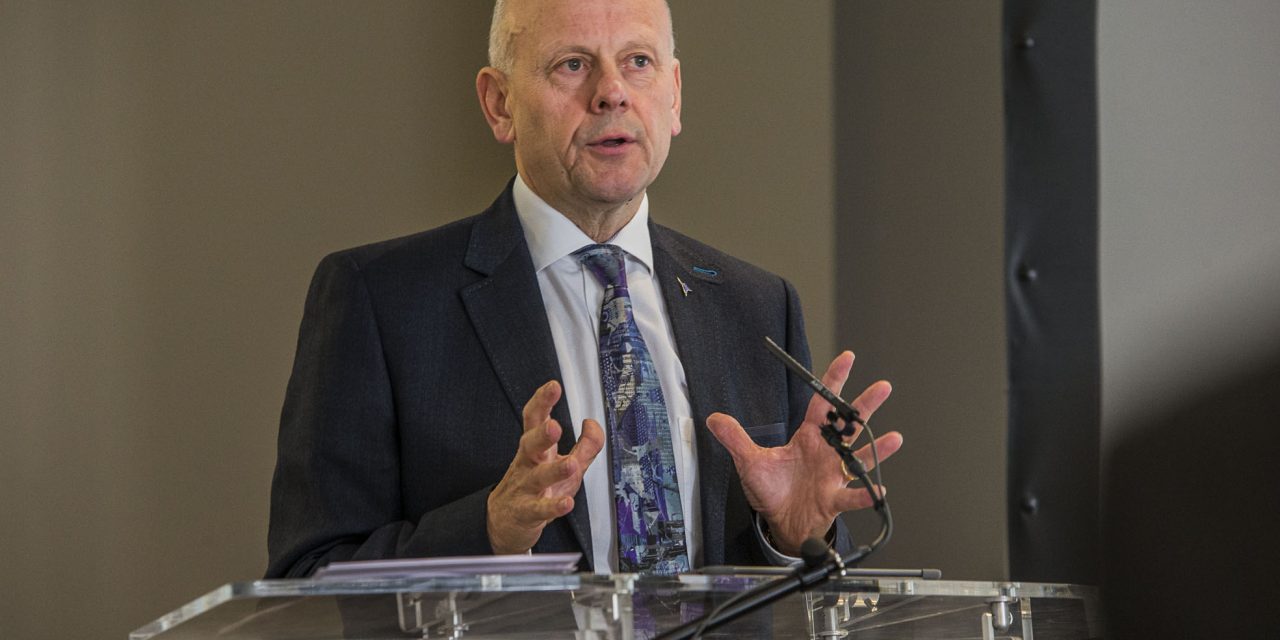Care home owners in the Rhondda have described the extra £22.7 million in emergency funding announced by the Welsh Government as a “temporary sticking plaster”.
While the additional money was “most welcome”, sector champions Care Forum Wales say the overwhelming priority must be to devise a national action plan to implement long-term structural change to mend a system that’s broken and fragmented.
The money being made available to local authorities is in addition to the £40 million made available to local authorities in April to support the social care sector to meet the skyrocketing bills in the wake of the coronavirus crisis.
The Welsh Government say they will review the situation again in September.
In the meantime, Health Minister Vaughan Gething made a point of thanking front line care staff and said Wales owed them a debt of gratitude.
Mario Kreft MBE, the chair of Care Forum Wales, said: “This extra funding and the kind words from the Health Minister are most welcome.
“But the extra money is only a temporary sticking plaster to tide the sector over until September.
“What we also need as a matter of urgency is a national action plan to implement fundamental long-term structural change to a broken and fragmented system.
“It is now August and this funding covers the period from July 1 so providers were becoming increasingly desperate.
“We cannot afford to wait until September to review the overall situation again. We need to start planning now so we can sustain the sector through this coming winter so that, crucially, care homes and nursing homes can support the NHS.
“We need to plan for the six-month period to get us through the winter when the pressure on the NHS is likely to be greater than they have ever seen and greater than we have seen during this pandemic.
“Certainly, care homes have never faced pressures like this before – it’s an enormously challenging situation.
“We need an overall strategy that includes the social care sector in tackling this emergency.
“The care homes haven’t caused the crisis but they can be an important part of the solution because they are caring for so many people who would otherwise be in hospital.
“Going into this pandemic, the sector was already fragile – as the First Minister rightly pointed out – and that is after a generation of a dysfunctional system that has to change.
“We need structural change so we have an integrated system which ensures that social care which is means tested dovetails better with the health service that’s free at the point of delivery and that it is funded in a more coherent way. Covid-19 has brought this into sharp focus like never before.
“The current model of funding which has been in operation for nearly a quarter of a century is clearly not fit for purpose and never has been.
“Funding is allocated via local councils and health boards which means we essentially have 29 variations on a theme which is an absolute nonsense.
“The vast majority of care home residents are publicly funded and providers have been forced to dance to the varying tunes of local councils for a generation”
“The absurdity of the situation was recently highlighted by the Cheapskate Awards handed out by Care Forum Wales which illustrated the unfair post code lottery plaguing the sector in Wales
“It means that a provider in Cardiff can receive £12,000 a year more than a provider in Powys for exactly the same level of service in providing care for one person, with an inbuilt North-South divide which has resulted in five North Wales councils being in the bottom 10 in a league table of the worst payers. For a 40 bed care home, that equates to around £500,000 a year.
“Something else we cannot afford is a repeat of the chaotic an inconsistent way in which money from the first £40 million tranche of funding was distributed by local councils.
“Our magnificent front line staff and the providers have been heroic in keeping the virus at by in the vast majority of care homes where they have either not had outbreaks of have managed them very well.
“Fundamentally, care homes are very safe, robustly managed places for vulnerable people and the biggest issues have been around people going into hospital. Many more people have succumbed to the virus in a hospital setting than in a care home setting.
“In fact, care home deaths associated with Covid-19 as a percentage in Wales have been lower than any of the other UK countries and lower than many in Europe.
“We need a new national action plan in place sooner rather than later so we can pump prime the sector, ensure the workforce benefits from the same terms and conditions as the NHS and implement structural change to properly integrate social care and the NHS so that providers are hard-wired in to meet the massive challenges that lie ahead.
“You cannot continue doing the same thing over and over again and expect a different result.”
Mr Gething said: “Social care plays a vital role in supporting some of the most vulnerable people in our communities and has been on the front line in our effort across public services to meet the challenges posed by Covid-19.
“The initial payment of £40m helped the sector meet the rising costs incurred during the pandemic in areas such as staffing, increased infection control, higher food prices and greater use of ICT to keep families in touch with their loved ones where they were no longer able to meet.
“This further funding will ensure adult social care providers can maintain their vital care in what continues to be challenging circumstances.”
This is particularly so in the case of care homes, who are now also facing financial challenges through loss of income as a result of increased vacancies in their homes due to the need to restrict new admissions to contain the virus.
The funding will be made available immediately and continue until the end of September after which the situation will be reviewed again.
The Minister added: “The social care workforce is on the front line of this huge effort to respond to the coronavirus pandemic and we are committed to supporting every single person do their job.
“Every one of us in Wales owes them a debt of gratitude. I want to personally want to thank our social care workforce for their fantastic efforts in protecting the public.”





